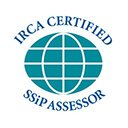What is a Fire Risk Assessment?
Whether it be coaching managers through a grievance procedure or chairing a grievance investigation on your organisation's behalf, our advisors are on hand to support you through the grievance process, step by step.
I don't have a grievance policy. How do I create one?
Fairness and transparency are promoted by developing and using rules and procedures for handling grievance situations. A written procedure can help clarify the process and help to ensure that employees are aware of their rights (such as to be accompanied at grievance meetings) and that the employer is operating in line with the ACAS Code of Practice (which is the minimum an employer should follow for handling grievance or disciplinary issues at work).
A grievance policy should be set down in writing and be specific and clear. As part of our HR offering, we ensure all our clients receive a written grievance policy compliant with the ACAS code of practice and detailed within a bespoke Employee Handbook.
What are the benefits of outsourcing employee grievances?
Any manager involved in a grievance matter should be trained for the task. They should be familiar with the provisions of the grievance procedure and know how to conduct or represent at grievance hearings. Employers should also be careful to hear any grievance calmly and objectively, being as fair to the employee as possible in resolving the problem.
In smaller businesses, grievances can sometimes be taken as personal criticism. This often makes all the above easier said than done, and hence, calling upon an external HR Advisor who is appropriately trained and impartial not only makes the process easier but also gives the employer peace of mind in knowing the investigation is being handled appropriately.
Furthermore, if an employee is unhappy with the decision after a grievance meeting, then they will have the right to appeal. As far as reasonably practicable, the appeal should be with a more senior manager than the one who dealt with the original grievance. In smaller organisations, this is not always possible. In such circumstances, appointing an external advisor to chair an appeal is of great value.









































